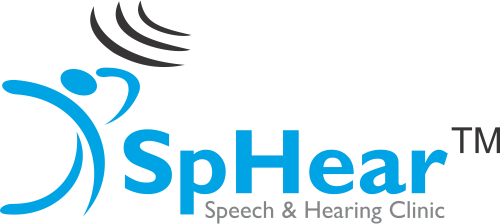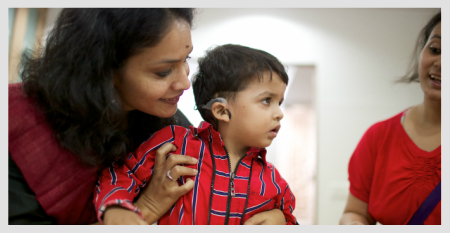- +91-11-4608 5246
- [email protected]
- Mon - Sat : 10:00 AM - 06:00 PM
Post Cochlear Implant Habilitation
Cochlear Implant is very beneficial over a normal hearing aid as you are able to hear speech sounds and spoken languages more accurately facilitating development in natural speech.
The implants adept to assist the sensitivity at certain frequencies for speech and also enables to monitor their own speech more productively. When a young child acquires a cochlear implant, they require a lot of input from a speech and language pathologist or parents to develop skills.
In the case when an adult receives an implant, they are likely to be less demanding for input from professionals as they already have desired speech skills.
Fitting and tuning of a speech processor
Soon after the surgery, the patient needs to visit the cochlear implant center for attaching the external part of the implant and program it. The electrical signals produced by the cochlear are very complex those need to be carefully programmed as per patient requirements. This process is known as turning and mapping.
After operation and tuning support
After a cochlear implant, the patient requires long-term support from local professionals for the effective use of an implant. The patient needs to make regular visits to the clinic for the process of mapping to make necessary adjustments as they enhance their language skills.
Transforming the environment at school and home
To help hearing-impaired children communicate, everyone around the child at school or home should be aware of their communication and build a similar environment. Hearing-impaired patients can be challenged to learn their language, but patients with implants have a good chance to learn from peers provided with an implant at an early who can provide repeated language input.
Auditory training
It is critical for patients to involve in the process of habilitaton as maximum skills can be achieved through listening activities. The activities can be performed in a structured session every day.
Take care of the patient’s age, level of understanding, and other auditory skills prior to implant. Start the training at the right level with the required difficulty level to keep the patient motivated for a high success rate.


